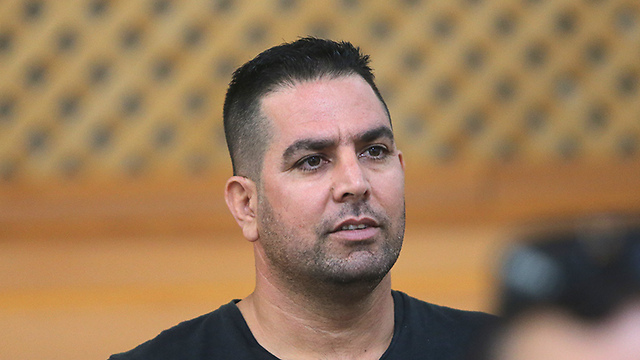

Why shouldn't Meni Naftali be allowed to sue the prime minister?
Op-ed: The current law shields elected officials from being sued for libel, in order to allow them to do their jobs. But when someone as powerful as Netanyahu feels safe in leading a smear campaign against a former maintenance man who worked at his house, the time has come to amend it.
Netanyahu's attack on Naftali is a clear-cut case of defamation. Netanyahu certainly knows that statements such as the ones he made against Naftali—in which he alluded to Naftali's alleged sexual harassment of a coworker, as well as to his alleged stealing from the Defense Ministry—are currently being prosecuted at the Herzliya Magistrate's Court, where Naftali is seeking an apology and monetary compensation for a series of slanderous statements made by a people who at the time were basically serving the prime minister. Among them you can find Netanyahu's personal attorney and cousin, David Shimron. So how is it that Netanyahu allows himself to make such outlandish statements? The reason is simple: Netanyahu is hermetically protected. Incredible as it may sound, the man cannot be sued.
The current law effectively grants the prime minister, ministers and all 120 Knesset members immunity from libel suits. This is in order for them to be able to carry out their duties. The problem is that these days, this same law essentially permits any minister or MK to lead an incitement campaign against any citizen or body they choose. This can include any number of journalists, who know their hands are tied, since that they cannot take the prime minister to court over such allegations.
The time has come for this to change. Not only because of what Netanyahu said on Wednesday. The existing law was formulated in another era, whereas today almost every MK has a Twitter account or Facebook page, each with thousands of followers, making these platforms their own, independent media outlets. As such, let the representatives elected to public office, the ministers and Netanyahu honor their positions without publishing slanderous remarks. And if they decide to go ahead and spread such comments anyway, have them explain themselves in court, just like any other citizen.

Several people in Naftali's inner circle expressed fear that he might face violence following Netanyahu's speech. The court has ruled that the Knesset does not become a "sanctuary city" for elected officials who violate the law, but incitement, unfortunately, is still permitted. As the court put it: "A person who engages in public speaking runs a high risk of being caught in prohibitions related to slander or incitement. Their immunity here is intended to grant them (protection—ed) in this risky area."
When incitement by politicians becomes a daily phenomenon, this situation must be remedied.

















